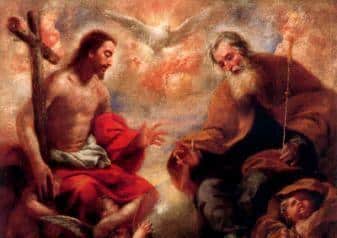 The old testament reading for mass today from the book of Numbers isn’t what it appears to be on the surface of things. The words we read for mass today, were written about three thousand, four hundred years ago. The age of these words are incomprehensible to many of us. We have a hard time relating to events that occurred one hundred years ago sometimes, let alone three thousand years ago.
The old testament reading for mass today from the book of Numbers isn’t what it appears to be on the surface of things. The words we read for mass today, were written about three thousand, four hundred years ago. The age of these words are incomprehensible to many of us. We have a hard time relating to events that occurred one hundred years ago sometimes, let alone three thousand years ago.
The book of Numbers was also written about one thousand four hundred years before the birth of Jesus Christ. Today’s account of the poisonous serpents biting the Israelites in the desert after they had sinned against God, then being saved by looking at a saraph lifted up on a pole, clearly depicts the cross of Jesus Christ too. The correlation from the saraph being lifted up in order to save the Israelites from their sins, to Christ’s death on the cross to save us from our sins, is just unmistakable. Jesus mentions something very similar to this in today’s gospel when he said, “When you lift up the Son of Man, then you will realize that I AM.” Jn 8:28
The old testament in the bible comes to fulfillment in the new. Another way of looking at this, is that the new testament lies hidden in the old. In the gospel of John, Jesus said that Moses himself had written about him. Jn 5:46 The name that Jesus calls himself in today’s gospel “I AM”, was also the same name that God the Father told Moses that His name was.
Today’s readings are full of theology and most of us do not have degrees in theology, but it is interesting none the less. Because of the fact Jesus called himself “I AM”, he was convicted and crucified. To call oneself God was blasphemy. The Jewish people killed Jesus because he called himself “I AM”. That was the last straw that led to his crucifixion because they did not believe that Jesus was the son of God.
Belief is a difficult thing for a lot of modern people as well. Atheists, agnostics and other secular people seem to need concrete proof that God is real and that Jesus is real too. They want to see him, touch him, and hear his voice for themselves, before they will believe. Yet, love is real and it can not be seen, or touched, or heard, or detected with any of our five senses. Everyone knows that love is real. Why then do they doubt God?
Jesus told the Pharisees, “You belong to this world, but I do not belong to this world” in today’s gospel. A wedding ring is an earthly thing, but the love behind it is not. The love behind the ring is what is real, and of lasting value. The love is what lives, not the metal. God is love and Jesus is love incarnate.
The Holy Trinity is just so profoundly present in today’s gospel. Jesus said, “The one who sent me is with me. He has not left me alone, because I always do what is pleasing to him.” This is a very good thing for us to notice as well. Jesus did not tell us that God didn’t leave him alone because he was His son. Jesus said that God did not leave him alone, because Jesus always did what was pleasing to Him.
Grace is a beautiful gift. To live in God’s friendship is a beautiful thing. This bond of love with our creator and with our Lord Jesus sustains us in all that we do. Our bonds of love, marriage or friendship are like this as well. Life can be a beautiful thing when we remain close to those we love. Jesus did what was pleasing to His Father, in order to maintain a close, loving relationship with Him. This of course applies to us in our relationship with God as well, but have we really given this some thought when it comes to our marriages? Or our friendships?
Do we do things that are pleasing to the ones we love too? Or are we mostly concerned about whether other people are doing things that are pleasing to us? That’s a good thought for the day. Instead of expecting others to do things that please us today, perhaps we could think a little more about pleasing those we love instead. It is Lent after all, and this is a very small thing that might make a big difference in the quality of our own relationships.
Daily Mass Readings:
Numbers 21: 4-9 / Psalm 102: 2-3, 16-18, 19-21 / John 8: 21-30
